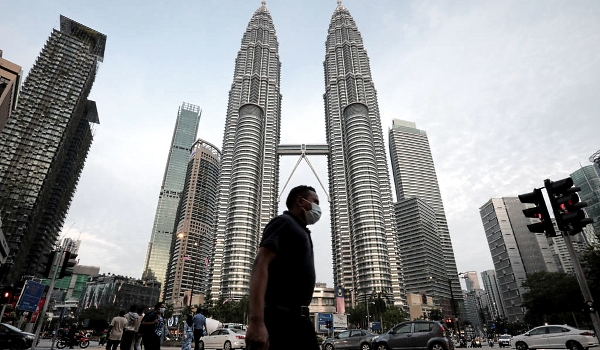Sin Chew Daily
No one expected the COVID-19 pandemic to wreak such a major havoc on the world in 2020. This black swan has upended the people's day-to-day lives and had dealt a heavy blow on the global economy.
The pandemic is still not put under control at this moment, as new waves of coronavirus infections are still ravaging across the globe. People do not only face the intimidation of the virus but also unprecedented economic crisis.
A prosperous life has since disappeared. Unemployment rate is spiking with more people trapped in poverty.
The World Bank has estimated that the pandemic will send 88 to 115 million people worldwide into abject poverty.
Malaysia is not spared. Minister in the Prime Minister's Department in charge of economic affairs Mustapa Mohamed said the number of families joining hardcore poor group will increase in the country this year.
"Running out of money" is such a common phenomenon nowadays, especially for the middle- and lower-income groups who have been rendered the biggest victims in this crisis.
A recent survey by the Statistics Department showed that 71% of self -employed individuals have less than a month's salary in their savings. As many companies have shut down and unemployment rises, the issue of poverty will only get worse.
As many are trapped in poverty as a consequence of the COVID-19 pandemic, this scenario has also revealed the fact that many Malaysians are financially vulnerable.
A survey conducted earlier reveals that people have low financial literacy whereby 75% of Malaysians have less than RM1,000 in their savings. Malaysians need to enhance their financial planning aptitude. Judging from a macro view, Malaysians being financially weak is not only because of individual financial planning but also the overall national economy.
We have been stuck in the 'middle income trap' for a long time with no increase in salary but inflation. When the economy is slowing, industry upgrade remains as talk only. How do the middle- and lower-income groups stabilize their financial positions to counter the current crisis?
Take a look at the figures. About 43% EPF contributors have less than RM10,000 in Account 1. For the 245,000 EPF contributors who turn 54 in 2020, 54% of them have savings less than RM50,000. The low level of savings of EPF contributors has revealed the reality in Malaysia — salaries are extremely low. This is not the issue of whether one is good at financial planning but the embarrassing situation of having insufficient money to manage.
The national economy should not be perpetually stuck at the same position. It is time to deliver ourselves out of the middle income trap and move forward.
This will require the government to embark on drastic reforms, work with corporations to upgrade industries to scale another economic platform. The crux of the issue is not on how to distribute the economic pie but to enlarge it. This is not a zero-sum game.
The middle- and lower-income groups can only effectively strengthen their financial capabilities and improve their economic resilience when the national economy is upgraded to a higher level. We have no more time to wait to upgrade our economy.

ADVERTISEMENT
ADVERTISEMENT


































